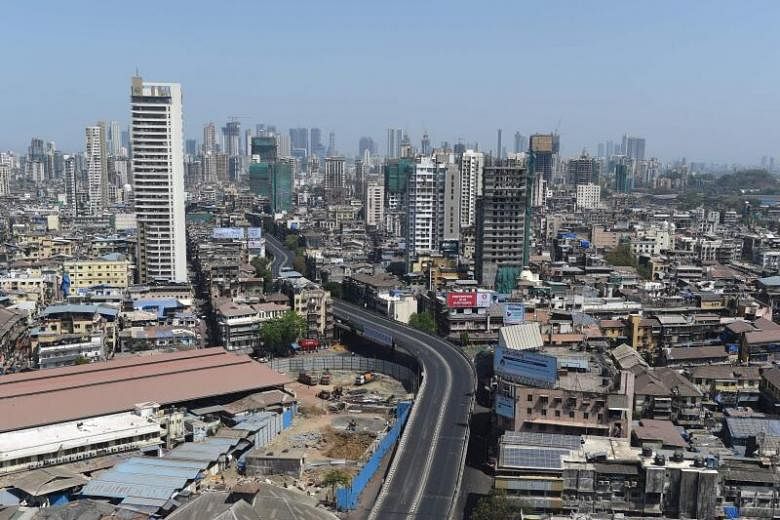NEW DELHI - Making land more easily available, fast-tracking clearances, relaxing labour norms and offering tax incentives are some of the promises India has made as it attempts to draw foreign investment, including those that may be diverted from China, in a post-Covid-19 world.
Some Indian states have already moved on their own. The southern states of Tamil Nadu and Andhra Pradesh have both set up a task force that will come up with offers to attract investors from Japan, South Korea, Taiwan, Singapore, Germany and the USA.
"We have strengths in pharma, electronics, automobile parts and mobile phone manufacturing, and will look for investors in these sectors," said Mr N. Muruganandam, the industry secretary in charge of the Tamil Nadu task force. He said a survey comparing Shenzhen, in China, and Sriperumbudur, in Tamil Nadu, found wages in the latter 30 per cent lower. Tamil Nadu consistently ranks high in infrastructure and manufacturing in India.
Andhra Pradesh, from where a Singapore conglomerate had to withdraw investment from the greenfield capital city of Amaravati over policy flip flops and delays last year, hopes to reassure investors.
"We will have transparent administration and clear decisions unlike earlier regimes. After Covid, we'd also prefer low pollution industries," said Mr Goutham Reddy, Andhra Pradesh's industries minister. The state has a sub-committee to liaise with each priority country for investment.
Mr Reddy added that the state's power surplus and relatively less industrialised but long coastline made it a prime space for marine and petrochemical corridors.
The Uttar Pradesh (UP) government has focused its efforts particularly on Japanese firms and initiated work on setting up a dedicated help-desk for them. Around 25,000 hectares of land has already been identified in the state for such firms.
Mr Sidharth Nath Singh, UP's minister for investment and export, tweeted on Friday to say the state is working to attract firms moving away from China and that it offers Japanese firms a "thoroughly conducive" atmosphere. Japan has earmarked US$2.2 billion (S$3.1 billion) of its economic stimulus package to help its manufacturers shift production out of China.
These state-level efforts are being overseen by the federal government, which issued a statement on Apr 30 to say a meeting chaired by Prime Minister Narendra Modi had discussed strategies to bring foreign investments into India on a "fast-track mode".
The head of an industry body, who did not wish to be named, said he has been in touch with a federal ministerial body working to promote investments into India. "The ball should start rolling soon and we expect some bold decisions," he told The Straits Times. "We have already seen some initiative," he added, referring to recent moves by some states to relax labour norms.
The government on March 21 had also announced a 409.95 billion rupees (S$7.66 billion) incentive package to promote large-scale electronics manufacturing in the country, especially that of mobile phones.
While India does offer the possibility of large-scale operations, a huge domestic market, as well as a skilled workforce, companies have been pushed away by regulatory red tape, unpredictable policy turns, high cost of production and taxes. A Nomura study of 56 firms relocating production from China between April 2018 and August 2019, amid ongoing trade disputes between China and the US, found 26 of them moved to Vietnam, 11 to Taiwan and eight to Thailand. Just three companies shifted to India.
Mr Kshitij Chaudhary, an Indian business consultant who has worked in Vietnam for six years, said India will have to work hard to match the benefits that Vietnam offers, including its socio-political stability and regulatory clarity.
"Companies can think long-term when it comes to Vietnam and envision their investments over a period of a few decades," he told The Straits Times. "The national and provincial governments there work almost like a corporate, talking investors through the strengths of its different regions and hand-holding them to ensure success," he added.
Dr Zorawar Daulet Singh, a historian and strategist based in Delhi, said the idea that India will rapidly grab market share in global manufacturing in light of the Covid-19 crisis is exaggerated. "For the past decade, India's industrial economy has weakened and the quality of its labour force has suffered because of years of neglect in training and education. We have not seen any attempt to identify and address core structural problems, so how can the supply side environment become magically attractive overnight to greenfield international capital?" he said.
Dr Singh believes it is more realistic for India to pitch itself less as an alternative to China - which he said it is not at its present stage of development - and more as a pathway to integrate those supply chains and sectors that possess employment generation potential and allow for a resurgence of India's fledgling manufacturing sector.
"China, along with Japan, South Korea and others, should be seen as partners in this process of rebuilding India and reconnecting South Asia with East Asia. But before any of this, India needs a comprehensive industrial strategy blueprint and not ad hoc opportunistic rhetoric from Indian policymakers," he added.











